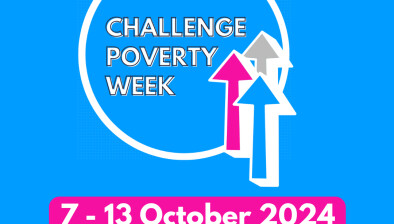One million children living in destitution amid ‘shameful’ increase, report finds

Approximately 3.8 million people in the UK experienced destitution in 2022, including around one million children, a new study has revealed.
Calling for an urgent need for action to tackle the issue, the fourth in the Destitution in the UK series from the Joseph Rowntree Foundation (JRF) showed that the figure is almost two-and-a-half times the number of people in 2017, and nearly triple the number of children.
The report, which was authored by Suzanne Fitzpatrick, Glen Bramley, Morag Treanor, Janice Blenkinsopp, Jill McIntyre, Sarah Johnsen, and Lynne McMordie, found that a growing number of people struggling to afford to meet their most basic physical needs to stay warm, dry, clean and fed has resulted in deep and profound impacts on health, mental health and people’s prospects.
It also puts strain on already overstretched services, it added. Nearly three-quarters of people experiencing destitution are in receipt of social security payments, further evidence of benefit inadequacy. Ad-hoc support from the Government, first during the pandemic and now to help with the cost of living, has not halted the rising level of destitution.
Among its recommendations for a “bold and ambitious” programme of action to address destitution and its corrosive impacts, the report said Universal Credit should have an ‘Essentials Guarantee’ to ensure everyone has a protected minimum amount of support to afford essentials such as food and household bills. An independent process should determine the Essentials Guarantee level, based on the cost of essentials. Universal Credit’s basic rate would need to at least meet this minimum amount, and deductions would not be allowed to reduce support below that level.
Wider reforms to social security should include lowering the limit on deductions from benefits to repay debts; reforming sanctions so people are not left with zero or extremely low income; and ensure people can access disability benefits they are entitled to.
Governments should also ensure cash-first emergency financial assistance is available in all areas, along with free and impartial advice services to address the crushing debt, benefits and housing issues that keep people destitute.
The report also wants to enable everyone in communities to access help in an emergency whether they have ‘no recourse to public funds’ or not – and resource local authorities to meet this additional need. Local authorities, charities, independent funders and housing providers should also work together to prevent destitution and homelessness for people with restricted entitlement, it said.
Responding to the report, Imran Hussain, director of policy and campaigns at Action for Children, said: “A million UK children living in the most abject poverty is a disgrace that should shame us all.
“We’ve distributed over £2m in emergency grants for food and other essentials to over 30,000 children and their families in the past three years. But it shouldn’t be up to charities like ours to fill the cracks in our country’s safety net.
“The Chancellor must deliver on his manifesto promise to use the benefits system to reduce child poverty. He needs to both protect benefits from inflation and boost targeted help to our poorest children.
“At an absolute minimum, all benefits must be increased by inflation in the usual way. That this is even in doubt is extremely alarming, and suggests a lack of understanding about the impossible choices families are facing.
“Increasing the child element of Universal Credit would lift hundreds of thousands of children out of poverty. This is the key mechanism in the social security system for helping poor children. Inaction here is indefensible.”







